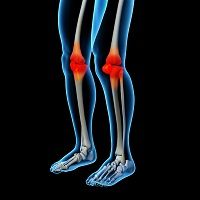Study Identifies Characteristics of Pain Improvement for Bariatric Surgery Patients
In preliminary results presented at ObesityWeek, University of Pittsburgh researchers revealed that 3 years after bariatric surgery, the majority of patients experience an improvement in pain and walking ability.

In preliminary results presented at ObesityWeek, University of Pittsburgh researchers revealed that 3 years after bariatric surgery, the majority of patients experience an improvement in pain and walking ability.
The study went on to identify key patient characteristics that can indicate which people are the most and the least likely to see improvement, a finding that could allow clinicians to identify patients who may require additional interventions to improve outcomes.
The findings are the latest to emerge out of the Longitudinal Assessment of Bariatric Surgery-2 (LABS-2), a very large, multi-year National Institutes of Health study dedicated to closely examining the short- and long-term impacts of bariatric surgery, including both positive and negative outcomes.
The first LABS arm occurred in 2003. The second is an ongoing study and is one of the largest active cohorts of bariatric surgery patients being followed long-term. The collaborative series of studies includes clinicians performing bariatric surgery, obesity research experts, internal medicine physicians, endocrinologists, and behavioral sciences practitioners, among others.
The researchers followed 2,221 patients for 3 years, after which 50% to 70% of adults with severe obesity who underwent bariatric surgery reported clinically important improvements in bodily pain, physical function, and usual walking speed. About three-quarters of the participants with severe knee and hip pain or disability before surgery experienced improvements in symptoms typically associated with osteoarthritis. In addition, over half of participants who had a mobility deficit prior to surgery did not after undergoing the surgery.
Other factors associated with significantly less improvement included older age, lower income, more depressive symptoms, and pre-existing medical conditions such as cardiovascular disease and diabetes before surgery. Conversely, greater weight loss, greater reduction in depressive symptoms and remission or improvement in several medical conditions were associated with greater likelihood of improvement.
“Functional status is an extremely important aspect of health that has not been as well-studied as other conditions that change following bariatric surgery and this study sheds light on specific factors that may affect improvements in individuals with joint pain who undergo these procedures,” noted lead study co-author Anita Courcoulas, MD, MPH, chief of minimally invasive bariatric and general surgery at Pitt’s School of Medicine.
The LABS-2 study will continue. Researchers hope to shed additional light on both safety and pain outcomes long after surgeries have been conducted.